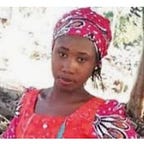(part 2/2)
“People, I just want to say, can’t we all get along? Can’t we all get along?” — Rodney King appealing for calm during the 1992 race riots in Los Angeles
From Farmers Market to All Comers Market
Eko was a magical place of creeks, lakes, and lagoons originally settled by the Awori who established a fishing industry there and grew peppers and other vegetables. Eko’s earliest history was associated with trade because of its advantageous location on the Bight of Benin. It was accessible over land and by various rivers. Ijebu merchants navigated up and down Ogun River and its tributaries on dugout canoes laden with goods. They traded their popular reverse-dyed Aso-Oke cloth and textiles for peppers, dry fish, and sea salt with the Awori; and the Ewe, Adja-Gbe, Ogu, and Fon peoples who came from the western coastal towns of Badagry, Seme, Cotonou, Aneho, even as far as Lome.
From the hinterland, using the means described above, the Egba also came and sold their Adire cloth and textiles here. So did the Ijesha, Owo, Ile-Ife, Iseyin, and Ekiti peoples. Thus, there was already a foundational market in place before the Portuguese joined in the 15th century. It was the Portuguese who, in their historical accounts, first called her Lago for her abundance of lakes. Lago was later anglicized to Lagos by the British.
Lagos Became a Trade Hub on the Slave Coast
As time went on, slave trade was introduced to Lagos as the Dutch, Germans, and British followed the Portuguese to the Gulf of Guinea. By the 18th century, Lagos had grown to become the most important slave trading port in the triangular trade. Much of the prosperity of Lagos was built on slavery.
Trade is Coded into the DNA of Lagos
The economic stature of Lagos only increased with time and its entire history has been shaped by its importance as an entrepôt and commercial centre. Let’s consider three historical events that have helped to shape the transformation of Lagos into a megacity:
· In 1851, Lagos Consul, John Beecroft, ordered the bombardment of Lagos Island. Thereafter, he caused Oba Kosoko to be deposed and Oba Akitoye was enthroned. Beecroft would later report to Whitehall that Kosoko was a slave trader. That was only a half-truth. Oba Akitoye also traded in slaves. The real reason was to break the Ijebu trade hegemony on the feeder trade routes that served to supply raw materials to Britain by way of the Lagos ports
· The Kiriji War started in 1877 and lasted for 16 years. The people of Ibadanland found themselves at war against the Ekiti-Parapo — a confederacy of Ekiti, Ijesha, and Ijebu nations. At the heart of the conflict was access to trade routes and ports. Most of the great rivers in Yorubaland — Ogun, Yewa, Osun, and Sasa — drain into the creeks, lakes and lagoons of Lagos. The regional powers could only trade with the Europeans if they could get to the sea
· With Lagos Island as ground-zero, the British colonial power made a deliberate and economically rational decision to incorporate the most important regional markets and shipping hubs into the Lagos metropolis. Thus, Lagos came to include Iddo, Apapa, Mushin, Bariga, Badagry, Ikorodu, Epe, and Ikeja. As it were, the British just waved their Maxim guns and appropriated the lucrative trade capitals from the combatants in the Kiriji War.
Lagos is a Land of Opportunity and Prosperity For All
The circumstantial growth of Lagos continued when the British named it the capital of Nigeria at independence. The point is that the debate about ownership of Lagos is an unhelpful belittling of the irrepressible legacy and potential of Lagos.
APC have been in power since 2015. Major General Muhammad Buhari, our immediate past president, failed in all his electoral promises on security, prosperity, and opportunity for the youth. Senator Tinubu, who succeeded him, campaigned only on his entitlement and made no promise to deliver dividends of democracy to the people.
Let Us Compete With Singapore City
Lagosians who voted in this election cycle are citizen patriots. They didn’t vote to aggravate Mr. Onanuga; or contest the ownership of Lagos with him. They were only asking for leaders who could deliver governance best practices such as would transform Lagos into a driver for prosperity on a national level, and a worthy competitor with her international peers. They didn’t need his permission to exercise their hard won constitutional franchise.
Still, we pray and channel our inner Rodney King to say this: “Can’t we keep Lagos open for business?” This is a good time for Mr. Onanuga to take down his tweet and dial down the cultural war in the media space going on between the Yoruba and Ndigbo. That would be an example worthy of an elder statesman serving a president of the republic.
